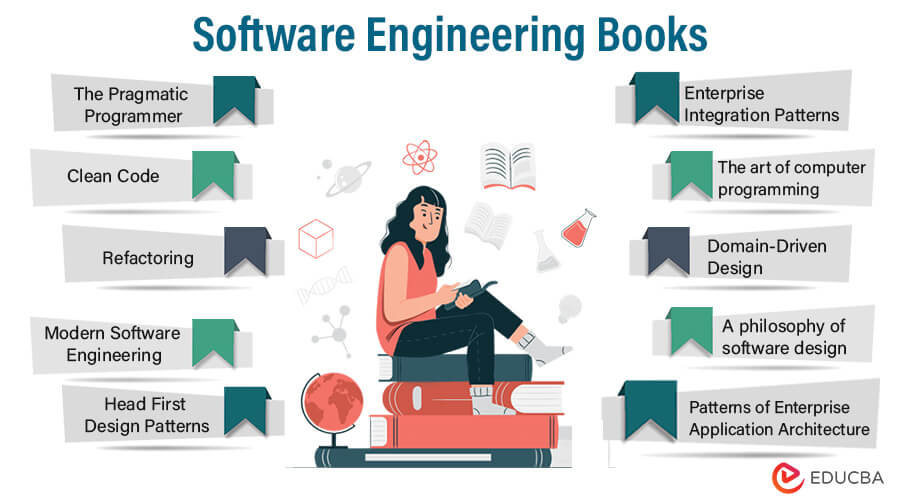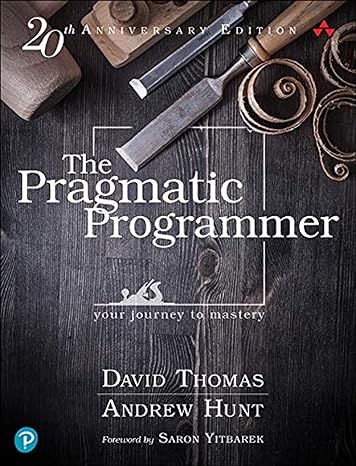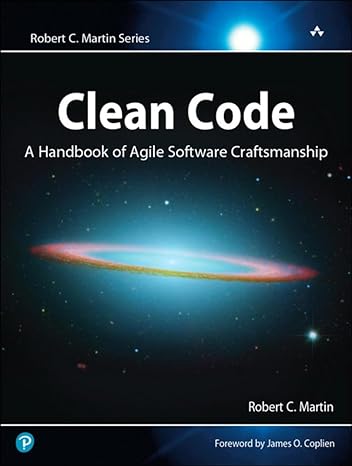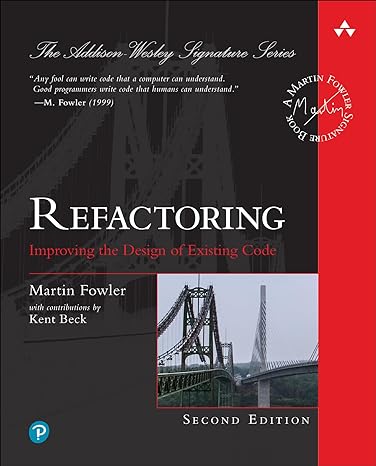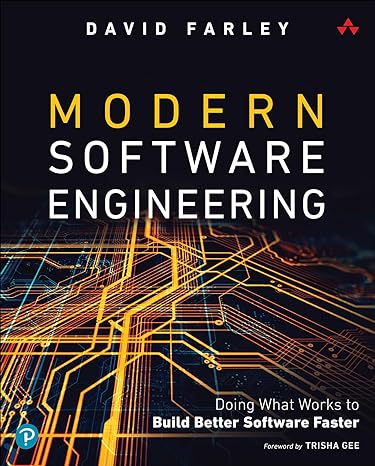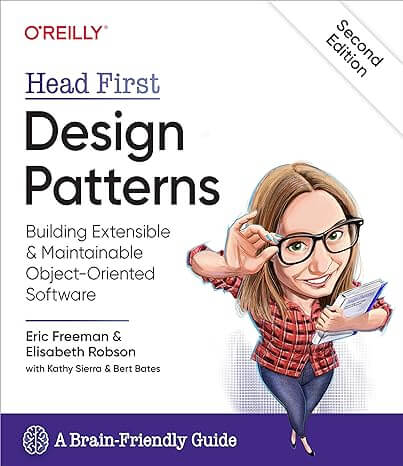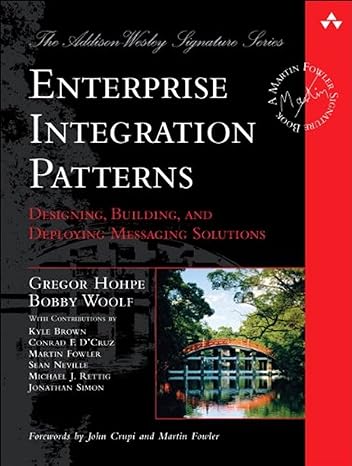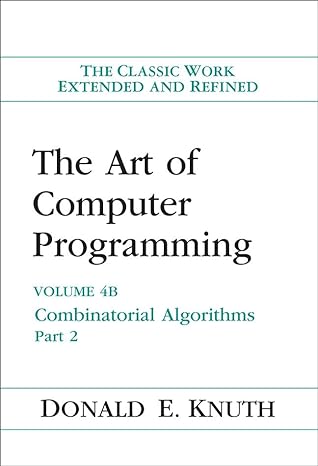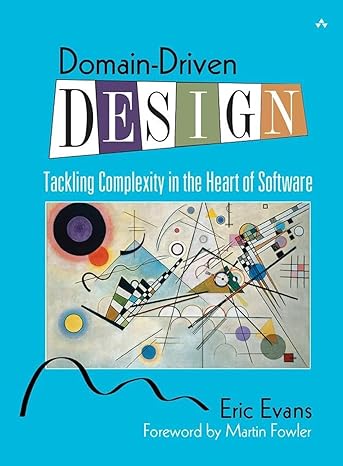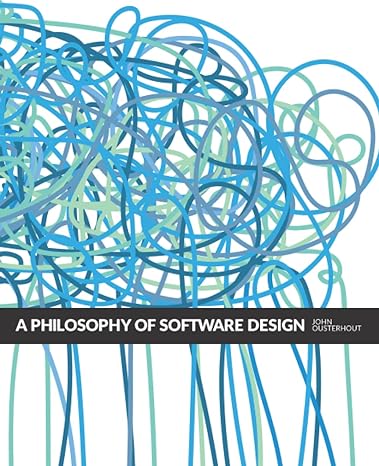List of Top Software Engineering Books
In today’s technology-driven world, software engineering plays a significant role in shaping the way we live, work, and communicate. From the applications on our smartphones to the complex systems powering our businesses, software is at the heart of virtually every aspect of modern life. As such, a solid foundation in software engineering principles and practices is not just valuable but crucial for professionals in the field.
This article aims to guide aspiring and experienced software engineers on their journey to mastering the craft. It recognizes that the field of software engineering is vast and continually evolving and that pursuing knowledge is an ongoing endeavor. To that end, we’ve curated a selection of must-read books that cover various aspects of the discipline. These books have stood the test of time, offering timeless wisdom and practical insights that are as relevant today as they were when first published.
Whether you’re a student embarking on your software engineering education or a seasoned developer seeking to deepen your expertise, these books will serve as invaluable companions in your quest for excellence. They cover topics ranging from coding and design to project management and theoretical foundations, providing a well-rounded understanding of software engineering principles and practices. So, without further ado, let’s delve into the world of essential software engineering books that will enrich your knowledge and enhance your skills.
Key features
- Build up your skills in the vast and fascinating world of computer programming through articulate reads on design patterns and architecture patterns and produce dynamic code.
- Handle test-driven deployment in precise steps with the ability to handle errors and format code that stays in line with good code practices.
- Keep up to date with the latest trends in writing speedy code that is at par with robust practices and reduces faulty errors.
- Leverage the ideas of a design toolbox containing many patterns, pick up helpful middleware product practices, and optimize clause learning algorithms.
Best Books to Learn Software Engineering
Whether you’re a Software Development professional, a Software Engineering enthusiast, or a student, these ten books on Software Engineering offer comprehensive insights into various aspects such as Software Engineering in Action, Clean Code, Refactoring, Modern Software Engineering, Head First Design Patterns, and more, providing a profound understanding of these subjects.
| # | Books | Author | Published | Rating |
| 1. | The Pragmatic Programmer | David Thomas, Andrew Hunt | 2019 | Amazon: 4.8 Goodreads: 4.3 |
| 2. | Clean Code | Robert C. Martin | 2008 | Amazon:4.7 Goodreads: 4.2 |
| 3. | Refactoring | Martin Fowler | 2018 | Amazon: 4.6 Goodreads:4.2 |
| 4. | Modern Software Engineering | David Farley | 2021 | Amazon:4.5 Goodreads: 4.2 |
| 5. | Head First Design Patterns | Eric Freeman, Elisabeth Robson | 2021 | Amazon:4.7 Goodreads: 4.3 |
| 6. | Enterprise Integration Patterns | Gregor Hohpe, Bobby Woolf | 2003 | Amazon: 4.7 Goodreads: 4.1 |
| 7. | The art of computer programming, The: Combinatorial Algorithms, Volume 4B | Donald Knuth | 2022 | Amazon 4.9 Goodreads- 4.5 |
| 8. | Domain-Driven Design | Eric Evans | 2003 | Amazon-4.6 Goodreads -4.1 |
| 9. | A philosophy of software design | John Ousterhout | 2021 | Amazon 4.5 Goodreads- 4.2 |
| 10. | Patterns of Enterprise Application Architecture | Martin Fowler | 2002 | Amazon: 4.5 Goodreads: 4.1 |
Review the key points provided to gain insights into each Software Engineering Book, helping you determine which suits your needs.
1. The Pragmatic Programmer: Your Journey To Mastery, 20th Anniversary Edition (2nd Edition)
Author- David Thomas, Andrew Hunt
Book Review
A book that revolves around the prerequisites and additional advanced material that should be readily available in every software engineer’s working memory. The concern of your learning level should be left behind while partaking in the contents of this book as there is something for each one of you in here.
Key Takeaways from that book
- Enhance your skillset in tackling software rot, producing dynamic and adaptable code, and harnessing basic tools’ efficiency.
- Dive into property-based testing, secure your files against vulnerabilities, and acquire real depth behind the substance that goes into production-level code.
Get this Book link
2. Clean Code
Author- Robert C. Martin
Book Review
Being part of a software development team comes with its own set of pros and cons; with this book, you can clear out your cons to a bare minimum whilst boosting your pros in a jiffy. The book is well structured, discusses three laws of TDD, and encourages taking notes.
Key Takeaways from that book
- Promotes differentiating good code from bad code, identifying good practices among both, and helping you work your way up in it.
- Prepare good names and good functions, work on test-driven development, format code, and handle errors.
Get this Book link
3. Refactoring: Improving the Design of Existing Code (2nd Edition)
Author- Martin Fowler
Book Review
This book is a hub for vast depth of knowledge and technical precision, all combined in one. Learn more about how to write code that works, arrange it to be more right, and finally convert it into faster code in an easy-to-follow manner.
Key Takeaways from that book
- Behold the principles that come into place when writing code for refactoring and building successful refactorings.
- Hone your skills to detect “bad smells,” a phenomenon each techie should be aware of to implement solid tests for refactorings.
Get this Book link
4. Modern Software Engineering
Author- David Farley
Book Review
Get to the core of software engineering basics with this immaculate read covering sound advice backed by experience. This book takes on a more practical approach to solving problems cemented on cold tactics to escalate further planning and improvements in your codebase.
Key Takeaways from that book
- Work on the modern practices of continuous delivery, feedback-driven iterative development, and design engineering.
- Trek on the journey from readability to delivery and releasability with sensible criteria and a breakthrough with incremental progress and empiricism.
Get this Book link
5. Head First Design Patterns
Author- Eric Freeman, Elisabeth Robson
Book Review
Deciding to start design patterns and don’t know where to go? Worry no more, as this book is your go-to guide for developing a taste in ethical design patterns with mind-refreshing exercises tinged in a fun manner.
Key Takeaways from that book
- Encompass metacognition in this engaging read-through topics such as setting behavior dynamically, constants, and inheritance.
- Familiarize yourself with the design toolbox, decorator pattern, command pattern, and many more.
Get this Book link
6. Enterprise Integration Patterns
Author- Gregor Hohpe, Bobby Woolf
Book Review
Reach as good a level as there can be with this particular gem of a book that is going to shake every belief you have of messaging systems. This book may be old, but the age-old advice still holds for asynchronous messaging integration for modern applications.
Key Takeaways from that book
- Get acquainted with patterns used in present-day middleware products like web methods, Tibco, etc.
- Expand your viewpoint with additions of JMS and MSMQ-centric examples, legacy apps, and evaluation SOA.
Get this Book link
7. The art of computer programming, The: Combinatorial Algorithms, Volume 4B
Author- Donald Knuth
Book Review
Carrying forward the legacy of its previous editions, this book is a remarkable addition, with its excellent text paired with sublime exercises to get you up and running on the programmers’s playing field. Learn more about recreational math, sudoku puzzles, and many more.
Key Takeaways from that book
- Solve problems with new tools in your arsenal for backtrack programming, optimum partitioning, and redux.
- Uncover random clauses, clause learning algorithms, and preserving maps in a way never approached before.
Get this Book link
8. Domain-Driven Design
Author- Eric Evans
Book Review
A brilliant take on exploring and getting ahead with domain modeling in software design in your engineer era. Object-Oriented Programming (OOP), layered architecture, and common design patterns are crucial elements for building robust and maintainable production-level code.
Key Takeaways from that book
- Share models with users, integrate design and development with human-computer interactions, and the rules by which great design is achieved.
- Create complex software with a maintainable fashion through experienced modeling and what businesses seek in domain logic.
Get this Book link
9. A philosophy of software design
Author- John Ousterhout
Book Review
A book with a considerable amount of power-packed chapters, summaries, and examples all combined in one and presented to you as a hearty treat. It provides a great measure to simplify complex software concepts with ease.
Key Takeaways from that book
- Overlays shallow modules, Agile and TDD, in a more academically oriented style that searches for the answer to reduce code complexity.
- Learn how different layers have different abstractions and feature abstractions as the development increases among many more such insightful reads.
Get this Book link
10. Patterns of Enterprise Application Architecture
Author- Martin Fowler
Book Review
Take more of what you bargained for in this delightful read about application architecture patterns. It includes the practice of putting patterns into thought-out use cases that can put real-world tailored specifics for certain problems.
Key Takeaways from that book
- Highlights the usage of mapping app data to relational DBs and concurrency control for app data comprehensively.
- Learn more about layers’ evolution in enterprise applications, mapping to relational databases, and input controller patterns.
Get this Book Link
